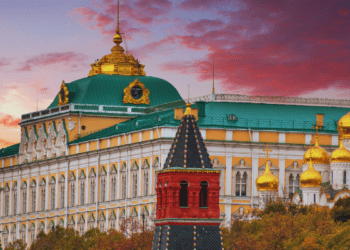Writing in the Globe and Mail, MLI authors Ken Coates and Dwight Newman argue that a recent Supreme Court decision granting land title to Aboriginals will not, as some have suggested, wreak havoc in natural resource development.
Coates and Newman acknowledge that the Tsilhqot’in decision has elevated the extent to which governments have to consult with First Nations groups. However the decision, released earlier this year, confirms the substantial authority of governments over Crown lands.
“While some alarmists have argued that the judgment will stop resource development in its tracks and create major economic dislocations, the reality is much different”, write Coates and Newman.
Coates and Newman are the authors of the MLI report, “The End is Not Nigh: Reason over alarmism in analysing the Tsilhqot’in decision”, which was released today.
By Ken Coates and Dwight Newman, Sept. 11, 2014
This summer’s Tsilhqot’in aboriginal title decision was one of those rare Supreme Court of Canada rulings that points the country in a new direction, challenging governments, business and the general public to rethink the fundamental elements of national governance. Its impacts are still being sorted through, whether in this week’s meeting between the B.C. cabinet and B.C. First Nations or whether in political manoeuvres such as a Quebec First Nation’s recent “declaration of sovereignty” over 80,000 square kilometres of territory.
While some alarmists have argued that the judgment will stop resource development in its tracks and create major economic dislocations, the reality is much different. First Nations in areas not covered by treaties have a much clearer indication of what is required to prove that they have aboriginal title to select pieces of property. The standard for consultation with First Nations has been elevated. But governments have also been given confirmation that they continue to possess substantial authority over resource development on Crown lands.
If the June 26 Tsilhqot’in Nation v. British Columbia decision is a game-changer, it’s more in the form of a rewritten rule book than a tilting of the playing field in favour of one side. There is no question that the Supreme Court judgment has altered the relationship between First Nations and provincial, territorial and federal governments. On balance, First Nations won a major decision and have good reason to be delighted with the ruling. But there are important limits and new directions from the court that should lead the country further down the path of reconciliation.
The decision will not have much impact on areas such as the Prairie West, Ontario and large parts of the North, where aboriginal communities have surrendered their lands through historic or modern treaties. In unceded areas, including most of British Columbia and other significant parts of the country, however, the ruling carries considerable weight. Recognizing aboriginal title, a major legal achievement for the Tsilhqot’in, conveys real and substantial authority over specific lands. That said, the test for title remains demanding and applies to areas more narrow than the claimed traditional territories of First Nations.
Perhaps the most significant element in Tsilhqot’in is the Supreme Court’s deliberations on the requirements for consultation with First Nations. Since 2004, resource development has proceeded under the court-ordered requirements for consultation and accommodation, with many aboriginal groups and companies finding ways to negotiate constructively. The Tsilhqot’in decision increases the requirements again, stopping just short of requiring the consent of First Nations communities before a project can proceed. The Supreme Court encourages governments to secure the consent of affected First Nations and encourages all participants to seek reconciliation and resolutions to disagreements through negotiation, rather than recourse to the courts.
Governments have not been stripped of authority over lands and resources. The court has clearly identified situations where a government could override aboriginal title, and provides some direction on how and when that override can be exercised, although this could benefit from further elaboration. Provincial governments retain considerable rights of their own and retain, as the more recent Grassy Narrows decision relating to Ontario reinforced, substantial capacity to manage resource development.
The Tsilhqot’in decision does alter the rules governing the use of resources in Canada, specifically on non-treaty lands. Negotiations on how to implement the decision should start immediately and with greater urgency than has governed these discussions in recent years. Governments could help shape the discussions by outlining the circumstances where and when they might utilize their override powers.
Over the past 50 years, the Supreme Court of Canada has been involved in reshaping the roles and authority of First Nations in Canada. Aboriginal peoples have discovered, repeatedly, that Canadian laws and legal processes are receptive to aboriginal rights and claims; the Canadian system does work for First Nations. But the Supreme Court’s most important message speaks to broader relationships than the law.
History has shown that aboriginal communities need to have real and substantial powers before other Canadians, including government, industry and the public, come to the table. The Tsilhqot’in decision gives such power to First Nations in non-treaty areas, and identifies a process for demonstrating aboriginal title to portions of their traditional territories. With this authority in hand, and with governments and industry adjusted to the permanent role of First Nations in shaping resource development, perhaps we finally have the preconditions for a national movement toward lasting reconciliation.
Ken Coates is Canada Research Chair in Regional Innovation, and Dwight Newman is Canada Research Chair in Indigenous Rights in Constitutional and International Law, both at the University of Saskatchewan.




